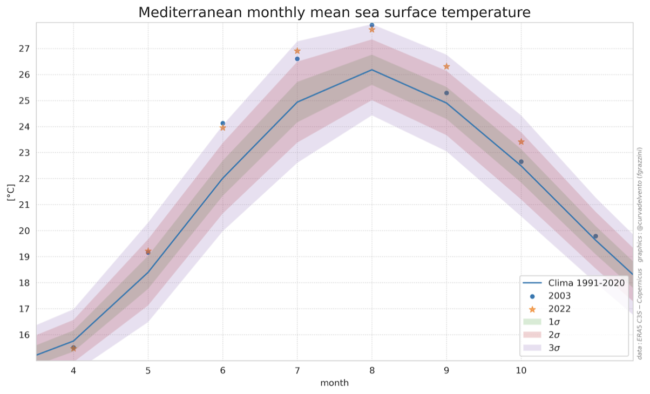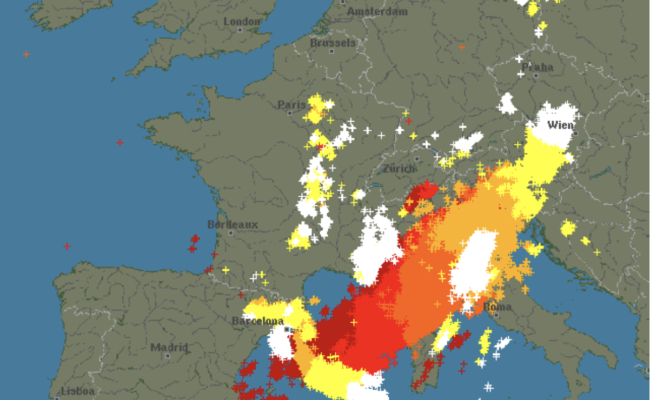Weather extreme events in the year 2022 are really hitting the Mediterranean basin very hard. Since the beginning of the year we are observing a widespread drought, heatwaves but also severe thunderstorms. Few days before the COP meeting in Sharm-el-sheik we discussed one of the experts of Mediterranean climate, Federico Grazzini, to unveil whether these events can be linked to climate change. Fe ...[Read More]
NP Interview: Federico Grazzini on Climate Change casts shadows on the present and the future of the Mediterranean Basin




